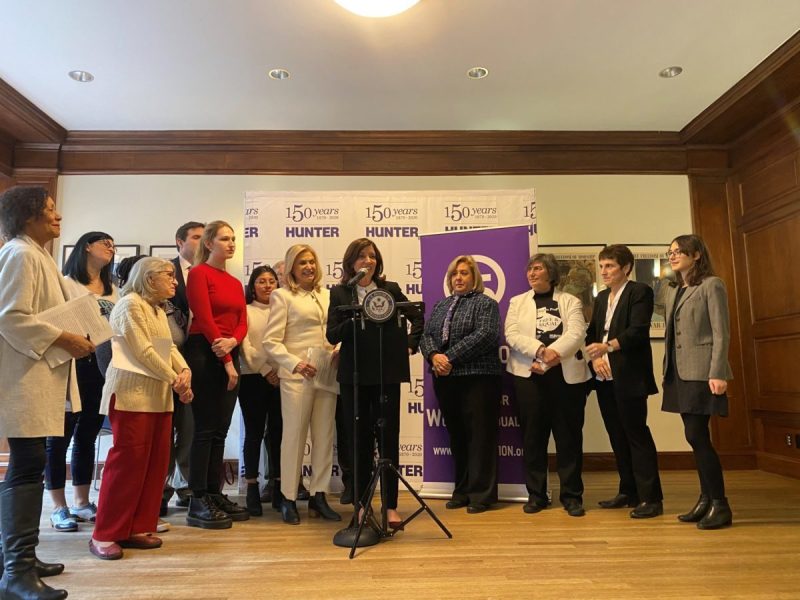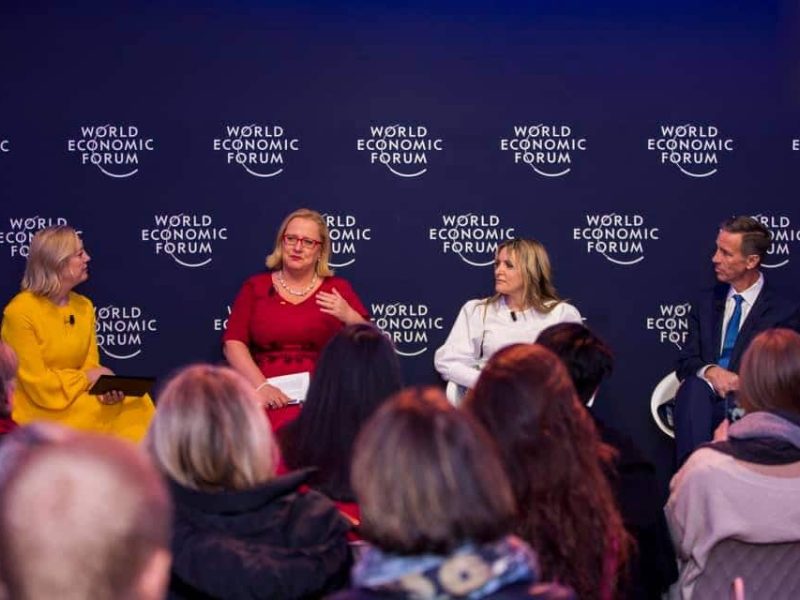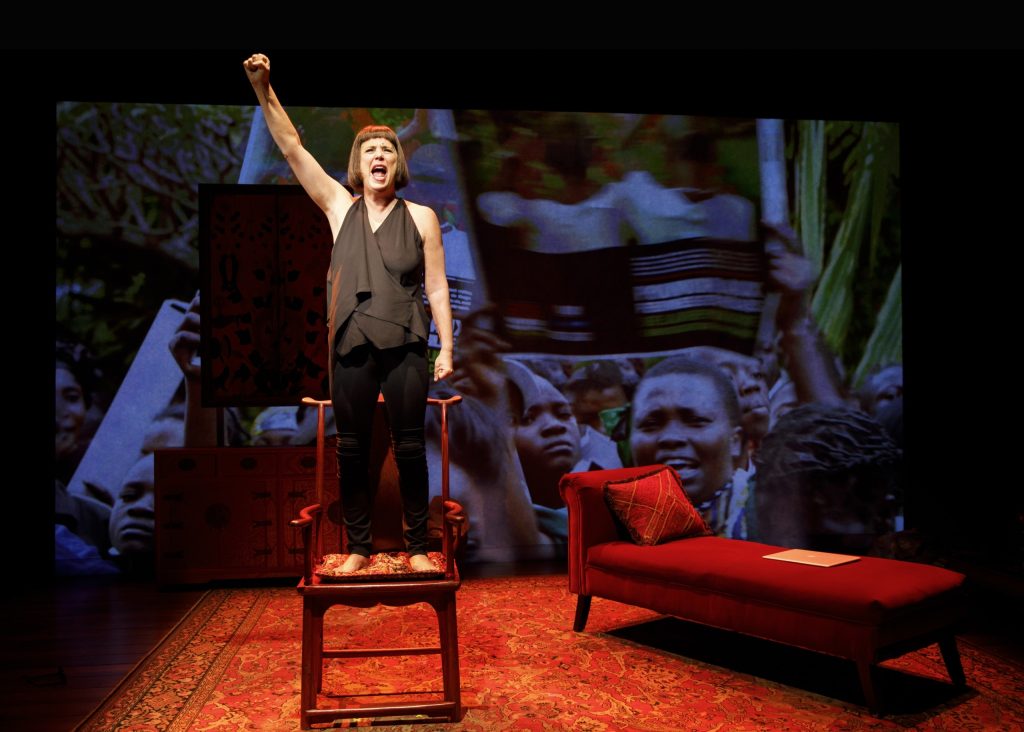
This past Valentine’s Day, I was honored to attend Eve Ensler’s powerful new play In the Body of the World followed by a 20-year anniversary celebration of V-Day, the anti-violence organization Ensler founded in 1998. In the one woman show, which is playing at the Manhattan Theatre Club through March 25th, Eve poignantly chronicles her personal journey of receiving, and transcending, a shocking diagnosis of cancer while working with women suffering from the ravages of war in the Democratic Republic of Congo. As with all of Eve’s work, this play reached me deep in my core—I experienced a cascade of emotions and was left feeling uplifted, reflective and inspired.
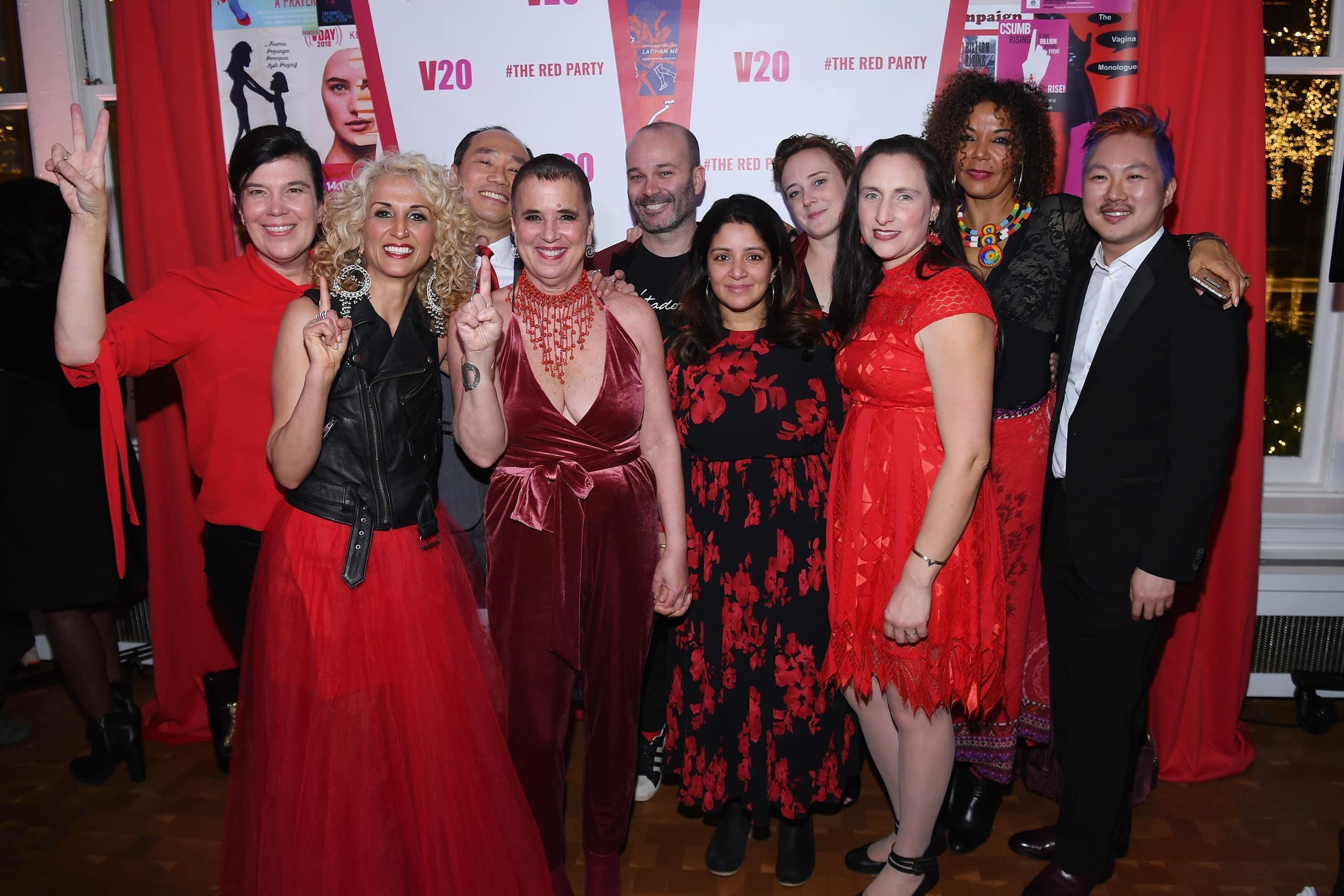
Seeing Eve’s new play was the perfect way to commemorate the 20-year anniversary of V-Day, since it was her groundbreaking play The Vagina Monologues that sparked the creation of V-Day in the first place. Featuring her fictional monologues based on interviews with more than 200 women talking openly and intimately about their bodies, the Obie Award-winning play struck a chord with audiences. As Ensler put it to me, “Language leads the way.”
The Vagina Monologues was a catalyst for an unexpected response: after every show, women would approach Ensler to share their personal stories of surviving violence at the hands of relatives, lovers, or strangers. Overwhelmed by their number and the shocking fact that one out of every three women in the world will personally experience physical or sexual violence—plus having been physically and sexually abused herself by her father—Ensler began to see her play as more than a work of art about women’s bodies, but also as a vehicle to help protect them.
I was immensely fortunate to bear witness to the inspiring birth of V-Day, sitting around my dining room table in New York City with Eve and other female activists back in 1997 when she relayed her bold idea of using her play to raise money to stop violence against women around the world. It was an electric evening, one I will always remember, helping Eve brainstorm and midwife her powerful vision into reality.
A few months later, at a benefit performance on February 14, 1998, Ensler officially launched V-Day, a global movement to end violence against women and girls. To work toward this goal, volunteer activists in countries around the world produce The Vagina Monologues along with other creative works, films, and workshops curated by V-Day. They use the proceeds to fund local programs, support safe houses, rape crisis centers, and domestic violence shelters, change laws to protect women and girls, and educate local communities to raise awareness and change social attitudes toward violence against women.
Twenty years and thousands of benefit performances of The Vagina Monologues later V-Day has raised over 100 million dollars for anti-violence programs across the globe and staged events in more than 200 countries. V-Day activists have also helped create City of Joy—a transformational leadership community for women survivors of violence in the Democratic Republic of Congo, which is owned and run by local Congolese—as well as One Billion Rising, the biggest annual mass action to end violence against women in history.
“V-Day doesn’t stop—it keeps growing and it keeps finding new ways and new angles to tie art and activism together.” —Tony Montenieri
Pat Mitchell, a V-Day board member who also attended the anniversary event expressed to me how unique and powerful V-Day is: “I don’t think it exists anywhere else in the world that you use a piece of theater, one play, one book and you put it out in the world and it becomes this activist tool for raising hundreds and millions of dollars and empowering women.”
Tony Montenieri, V-Day’s Acting Campaigns Director, put it to me this way: “V-Day doesn’t stop—it keeps growing and it keeps finding new ways and new angles to tie art and activism together. And it’s that unstoppable action that is a catalyst for change, and that’s how change happens.”
“We need to let the people who are the most marginalized take the lead and have their backs, because they know how to get where we are going and we don’t.” —Eve Ensler
The way in which V-Day focuses on the grassroots communities—putting the power in the hands of local activists in each region—has been a critical component to V-Day’s success and widespread impact. As Ensler said at the anniversary event, “Movements take time. They are based on friendships, they are based on trust, they are based on solidarity, which means those of us who have privilege, those of us who have things that other people don’t have, have to get out of the way so that the grassroots leaders can lead. We need to provide them with the resources they need and then we need to step out of the way and bow and shut up and serve. We need to let the people who are the most marginalized take the lead and have their backs, because they know how to get where we are going.”
V-Day has brought together activists to strategize at critical times, in the wake of disasters and war. And it has gone always back to its roots—to art—using dance, film, photography, music, and of course theater to activate people at their cores. Eve Ensler wrote the movement into being with The Vagina Monologues, and then set the stage for grassroots leaders, who make the play their own, creating local movements tied to a global vision and network.
Reflecting on 20 years of the movement, Susan Celia Swan and Purva Panday Cullman, V-Day’s Executive Director and Senior Programs Director, noted, “It all started with a series of stunning monologues, but it has turned into an energetic, determined global uprising, crisscrossing continents, demanding one thing: liberation for all our sisters. We have seen women transformed into community and global leaders after having produced the monologues or having stood onstage performing them. We have seen the intersections of social, economic, environmental, and political issues and how violence against women and girls is deeply connected to the global challenges facing our planet today. We have seen that by placing art at the center of their activism, V-Day activists have sustained and grown a movement unlike any other on the planet.”
Kate Fisher, former V-Day staff and longtime V-Day activist, described the beauty of working with the grassroots this way: “What V-Day means to me is it’s a global family. It’s a community of activists that you can relate to, that you understand that you are a community that you are a part of no matter where you go in the world—from New York City to Delhi, 220-some-odd countries and territories, I can go anywhere in the world and I find my V family. And we know how to get shit done. We work with grassroots activists all over the world, just to kind of help them and help each other and figure out how to actually change this world for the better through support and through love.”
“Along with the raising money, we have raised activists.” —Pat Mitchell
It feels fitting that the 20th anniversary milestone of V-Day falls during this historic moment of #MeToo. In many ways the story of Eve Ensler and V-Day is such a powerful testament to the world-changing personal and collective transformation and change that is possible when women speak up and share their stories, or as Eve calls it, turning “pain to power.”
Pat Mitchell recognized this fact, telling me, “Now I understand why we are at the #MeToo and #Time’sUp movement. It started 20 years ago, because many of the women who are leading those movements were activists in V-Day. They grew up doing The Vagina Monologues in high school or college, and no one’s ever really recognized that part of V-Day: that along with the raising money, we have raised activists. We have helped them find a voice and a place. V-Day was a catalytic moment, that has catalyzed many, many other movements including where we are now.”
Another cornerstone of V-Day is the belief that if women can tell their stories of violence and listen to others’ stories with compassion, we can effectively “shatter the silence around women’s experiences with sexuality and violence.”
Kate Fisher put it to me this way: “V-Day has taught me that everybody’s story and everybody’s experience needs to be listened to, understood and validated, and that we have an obligation as part of the human race and our global community to respect and honor everybody’s stories so that we can empower each other. We all have it within ourselves, and V-Day has taught me not only how to find it within my own self, but also how to be in community with other people as they find their own power.”
Laura Flanders, host of The Laura Flanders Show, said “We are no question stronger and braver and more brilliant and more loving because of V-Day, and that’s progress right there.”
“We have to stand for every Mexican, for every Muslim, every African American, every Indigenous, every transgender person, every LGBT person and every woman in this culture.” —Eve Ensler
This idea of being “more loving” is another thing that makes Ensler and V-Day stand out. Ensler stresses the importance of taking care of each other and being inclusive of and united with all races, religions, genders, and treating everyone with love and respect.
Ensler spoke about this at the event, stating, “I just want to say I really feel we have to be very sensitive right now in this culture. I hear every day from beautiful Haitian activists what it feels like to have someone call your country a ‘shithole’—that’s real, and that wounds. I hear every day what it is like for immigrants who are in the frontline being threatened to be exiled from this country, when they believed it was their home.
She continued, “We all have to look around us and reach out to every person around us and make sure they know it isn’t us who feel that way. Because this government is dividing us, like when I did that scene tonight, I talked about my father: he has all the resources, all the air, all the power and we live off the fumes. And what they do is divide us and they turn us on each other. We have to be stronger than that and we have to stand for every Mexican, for every Muslim, every African American, every Indigenous, every transgender person, every LGBT person and every woman in this culture. We are going to win when we understand there is only one place we are going and that’s where women are free, where racism is over, where poverty is done, where the earth is honored and war is ended.”
Pat Mitchell expressed to me how hopeful she is based on all that V-Day has accomplished in the past two decades and the women’s movements that are taking on new life. She told me, “I am feeling hopeful because I don’t think this genie can go back in the bottle too easily. And I don’t think the pushback that we’ve experienced before when these eruptions happened, I don’t think that’s possible now because it’s too widespread. It’s crossed economic, cultural, and racial barriers—it’s intersectional in the way that successful movements have to be. I do believe we might be seeing a cultural and paradigm shift that we have not witnessed in our lifetime.”
“We have to make sure we keep our bodies, our sexuality, our ecstasy, our joy and our celebration alive.” -Eve Ensler
Having been lucky enough to know and work with Eve since the very beginning as she was planting V-Day’s first seeds, I continue to be awed and inspired by all she has been able to accomplish through her extraordinary and beautiful spirit, talent, vision, courage, sheer will, and passionate commitment to her mission. Her fiery closing remarks at the event sum up all that she has stood for these past 20 years and continues to stand for every day: joy, freedom, power, resistance, and the importance of taking care of each other and ourselves. She said, “We have to make sure we keep our bodies, our sexuality, our ecstasy, our joy and our celebration alive, because they are not taking my fucking joy. They’re not taking my joy. They’re not taking my sexuality, they are not taking my power. And my power comes from my body, so you all have to take care of your bodies, you have to make sure they’re not getting devastated by this culture, and we have to take care of each other.” To learn more about V-Day and their work, visit www.vday.org.
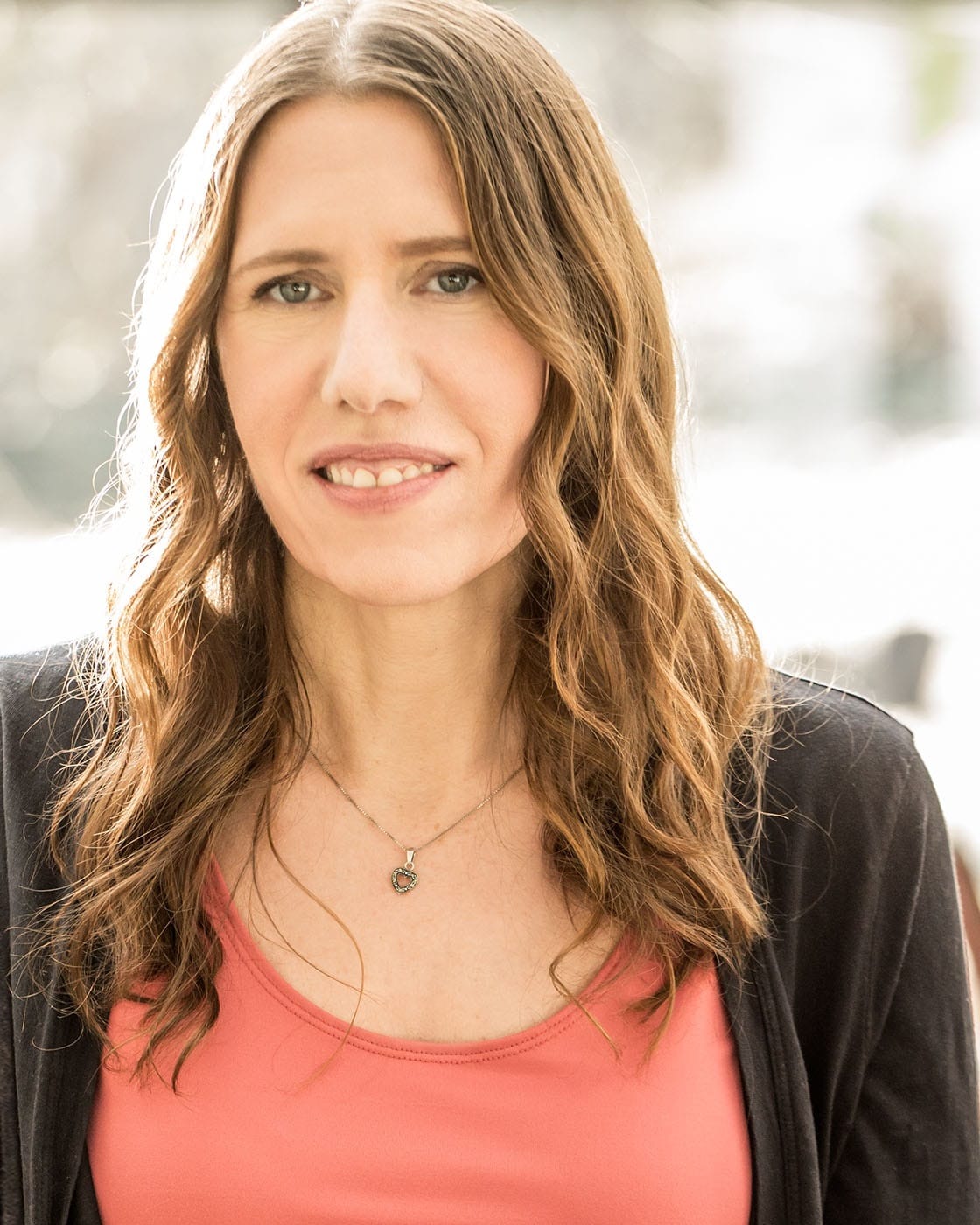 Marianne Schnall is a widely-published interviewer and journalist and author of What Will It Take to Make a Woman President? Conversations About Women, Leadership & Power. She is also the co-founder and Executive Director of the women’s website and non-profit organization feminist.com (http://www.feminist.com) and co-founder of What Will It Take Movements(http://www.whatwillittake.com
Marianne Schnall is a widely-published interviewer and journalist and author of What Will It Take to Make a Woman President? Conversations About Women, Leadership & Power. She is also the co-founder and Executive Director of the women’s website and non-profit organization feminist.com (http://www.feminist.com) and co-founder of What Will It Take Movements(http://www.whatwillittake.com

